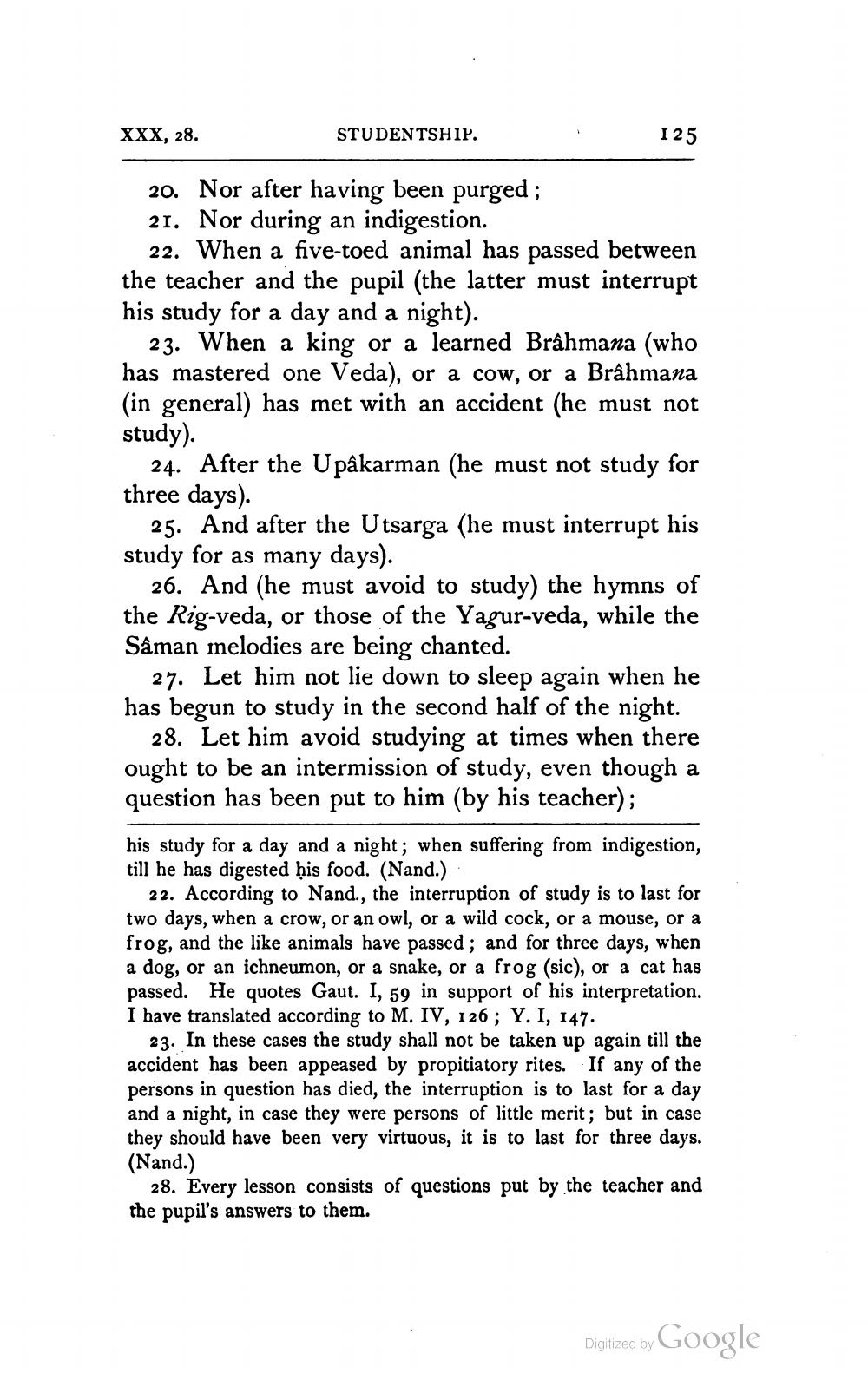________________
XXX, 28.
STUDENTSHIP.
125
20. Nor after having been purged; 21. Nor during an indigestion.
22. When a five-toed animal has passed between the teacher and the pupil (the latter must interrupt his study for a day and a night).
23. When a king or a learned Brâhmana (who has mastered one Veda), or a cow, or a Brâhmana (in general) has met with an accident (he must not study).
24. After the Upakarman (he must not study for three days).
25. And after the Utsarga (he must interrupt his study for as many days).
26. And (he must avoid to study) the hymns of the Rig-veda, or those of the Yagur-veda, while the Sâman inelodies are being chanted.
27. Let him not lie down to sleep again when he has begun to study in the second half of the night.
28. Let him avoid studying at times when there ought to be an intermission of study, even though a question has been put to him (by his teacher);
his study for a day and a night; when suffering from indigestion, till he has digested his food. (Nand.)
22. According to Nand., the interruption of study is to last for two days, when a crow, or an owl, or a wild cock, or a mouse, or a frog, and the like animals have passed ; and for three days, when a dog, or an ichneumon, or a snake, or a frog (sic), or a cat has passed. He quotes Gaut. I, 59 in support of his interpretation. I have translated according to M. IV, 126; Y. I, 147.
23. In these cases the study shall not be taken up again till the accident has been appeased by propitiatory rites. If any of the persons in question has died, the interruption is to last for a day and a night, in case they were persons of little merit; but in case they should have been very virtuous, it is to last for three days. (Nand.)
28. Every lesson consists of questions put by the teacher and the pupil's answers to them.
Digitized by Google




